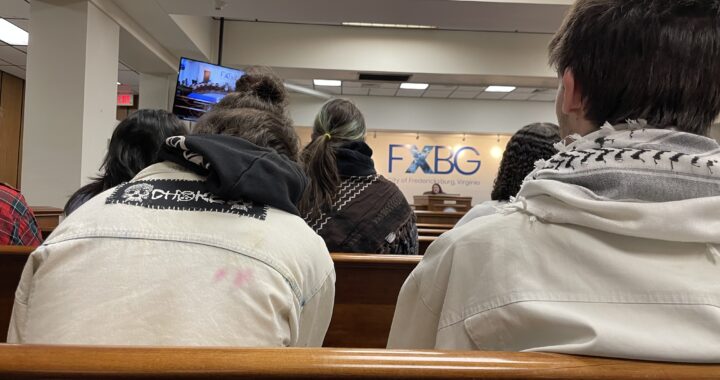Think Before You Speak: Black History Month Lecture Covers Controversial Word
3 min readBY ANNIE LONGERBEAM
Unlike the Martin Luther King Jr. and hip-hop speeches given throughout Black History Month, last DATE’s lecture was on a more controversial topic – the “n” word.
Reverend Shaunna Payne, Acting Director of the James Farmer Multicultural Center, lead the discussion in WHERE at the University of Mary Washington.
According to Payne, the center holds dialogues on issues that they feel need to be addressed within a comfortable environment and through educated speakers.
“We’re here to have a special dialogue to learn more about the word and its usage and history,” Payne said. “As a liberal arts college, we’re equipped to do that in intimate settings.”
Among the things covered in Payne’s speech were the people using the word, the context it is generally placed in, its implied meanings and stereotypes associated with it.
Payne shared personal stories in her hour long talk.
“One thing I found very interesting was a very small child the age of four or five was using the “n word” with another small child, not knowing what the word meant,” said Payne. “Sometimes I often think that we are also kind of children in that mindset.”
Payne concluded her speech by talking about how the usage of the “n word” fit into the ever-changing politically correct definitions of race.
“When I trace my maternal background, everyone for the last several generations has had a different word on their birth certificate; negro, black, then African American,” said Payne.
Kristin Marsh, Associate Professor of Sociology, mediated the discussion.
Marsh thought that while the topic is a difficult one to address, it is an important issue for public conversation.
“It’s a good opportunity for different groups on campus to be in a safer space and to be able to break down these tougher issues,” said Marsh.
In addition to mediating the discussion, Marsh addressed the historical context of the word in the English language, dating its origins back to the 17th century.
Osob Samantar, a senior, was curious about the student debate that the talk would inspire.
“The discussion definitely started up dialogue about the topic,” said Samantar. “People were openly talking about it.”
Samantar agreed that it was necessary for different groups on campus to come together in a public discussion format.
“A lot of people who do not think alike were able to be in the same room,” Samantar said. “I feel that a lot of different kinds of people came, and I think that has a lot to do with Professor Marsh being here.”
Samantar, during the lecture, defined the “n word” in the English language according to rap culture.
“Rappers were trying to use the word and turn it into something positive, and once rap became popularized, the word also became popularized,” Samantar said.
Andrew Godburn, a sophomore, enjoyed learning about the political correctness of the word and the debate over who is able to use the euphemism. He feels that the word does not have a place outside of discussions like the one he attended.
“The ‘n word’ is always offensive, hands down, in any scenario,” Godburn said.











